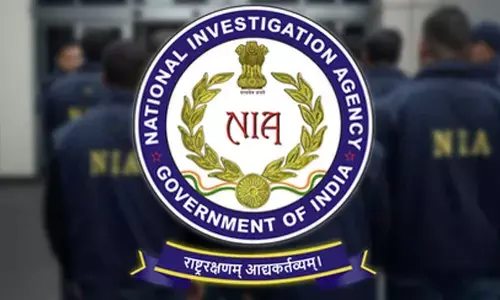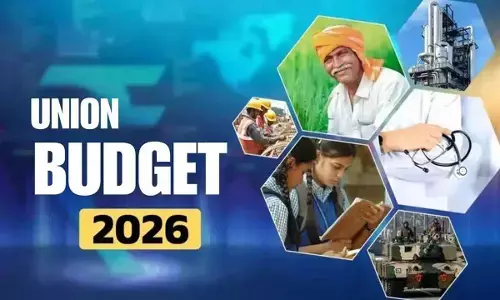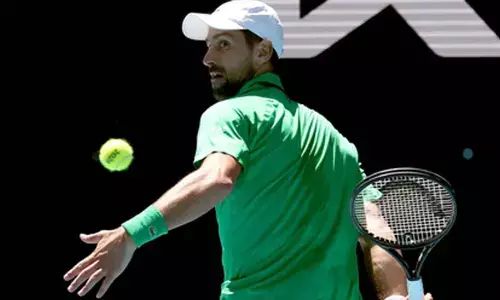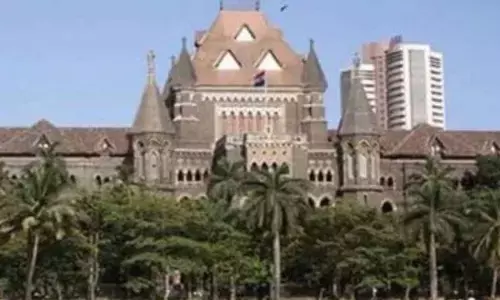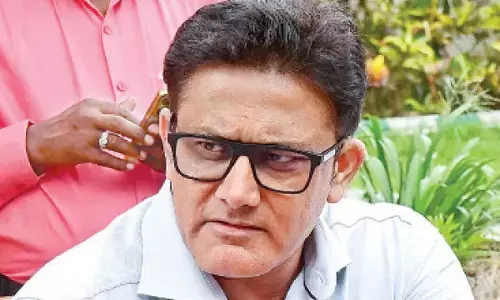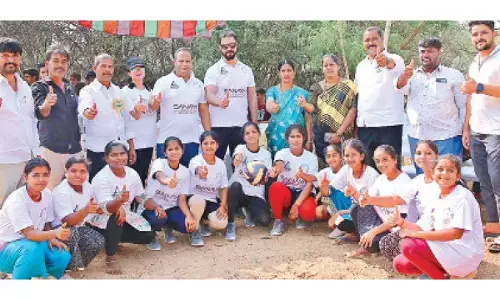Joyful childhood: All deserve one
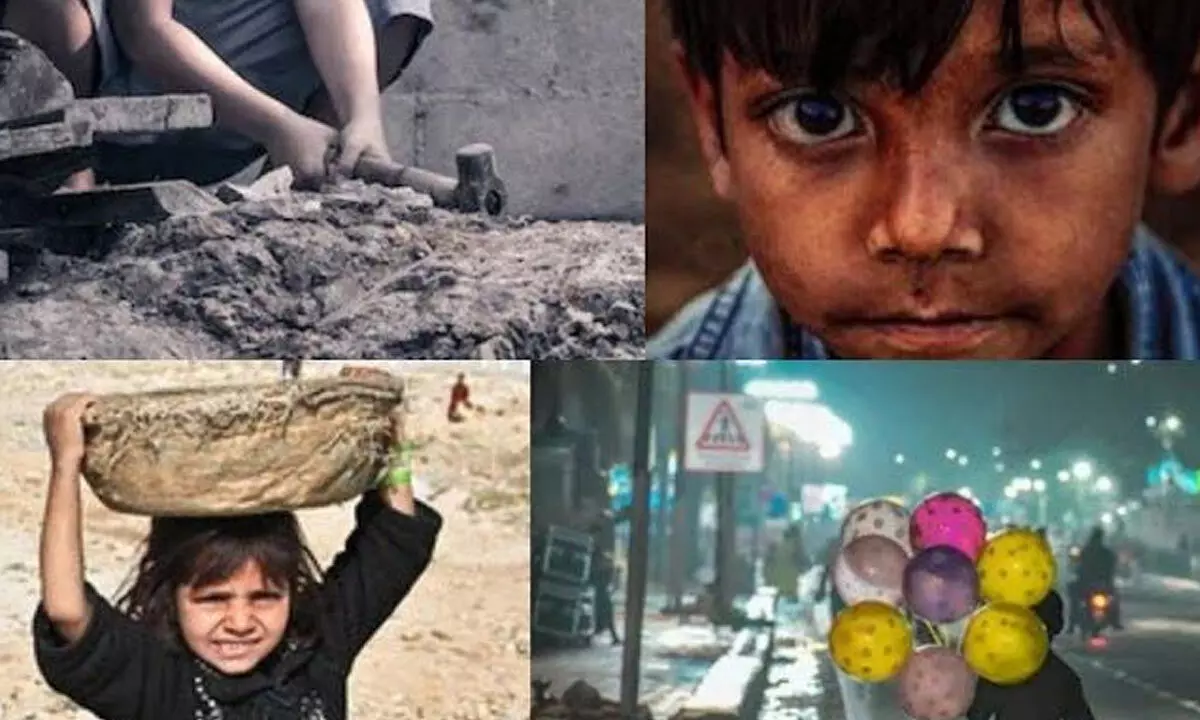
On November 14 this year, the birth anniversary of Pandit Jawaharlal Nehru, the country celebrated ‘Children’s Day’, as in every year since 1954, to raise awareness about the rights, education and welfare of children.
On November 14 this year, the birth anniversary of Pandit Jawaharlal Nehru, the country celebrated ‘Children’s Day’, as in every year since 1954, to raise awareness about the rights, education and welfare of children.
The World Children’s Day is celebrated every year on November 20, to commemorate the Declaration of the Rights of the Child in 1959 by the United Nations General Assembly, to protect their rights of education, health care, shelter, and good nutrition. As early as in 1857, one Reverend Dr Charles Leonard in the USA had held a special service, dedicated to, children, on a day first called ‘Rose Day’ and, later on, ‘Flower Sunday’.
The Children’s Day is celebrated on different dates in different countries. Turkey in 1920 became the first country in the world to declare a national holiday on 23rd April every year to be celebrated as ‘Children’s Day’. “Child is the Father of the Man” is an idiom used by the immortal William Wordsworth in his poem, ‘My Heart Leaps Up’. It is commonly understood to mean that a person is the product of the habits, and behavior, developed early in life. The flexibility of childhood acts as an advantage in moulding the character of the child, before it is too late. If a person is to grow up to be a mature, wise, productive and happy adult, the importance of a wholesome, healthy, secure, and joyful childhood cannot be over emphasised. Childhood is a stage of innocence in which the child believes others and loves unconditionally. The innocence, and gullibility, of children is such that anything that is done with little difficulty is described as ‘as easy as taking candy away from a child’.
The condition of millions of children across the countries of the world continues to be a matter of grave concern. They are denied rights, which are legitimately due to them, merely on account of their gender or the circumstances in which they are born. One out of every six children lives in extreme poverty, with stunted growth being the inevitable result.
According to studies, 149 million children, are stunted in the world, and more than 175 million, children remain outside the pale of pre-primary education.
In 1946, by way of response to the miserable plight of children across the world following the 2nd World War, the United Nations Organisation created a new agency called the United Nations International Children’s Emergency Fund (UNICEF).
The United Nations Millennium Development Declaration, in September 2000, committed member countries to 8 goals, known as the Millennium Development Goals (MDG)s, six out of which concern UNICEF. In recognition of the fact, that the 153 million children are forced into child labour, The International Labour Organization (ILO), in 1999, adopted the Prohibition and Elimination of the Worst Forms of child labour, including slavery, child prostitution, and child pornography.
In 1990, heads of state, and government, of 71 countries, met in New York, in the largest such a gathering ever, ‘The World Summit for Children’, which adopted a declaration for the survival, protection and development of children and a Plan of Action declaration.
Many national leaders in India were known to be very fond of children. Nehru was, in fact, so fond of them that he was known as a ‘Chacha’ or Uncle Nehru. A P J Abdul Kalam, formerly President of India, also enjoyed the company of children. Once, seeing Kalam mingling with children at the Rashtrapati Bhavan, media persons asked him whether he missed never having a child of his own. With a twinkle in his eyes, Kalam replied, “All of you are wrong, I have three sons.” “You don’t know my three sons? They are ‘Earth’, ‘Agni’, and ‘BrahMos’.
I have many pleasant recollections of my childhood, particularly of the first nine years I spent in (the then) Madras city. I went to Children’s Garden School, an institution established, in 1937, by Mrs Allen and Dr V N Sarma, with an initial group of seven children, and dedicated to the ideas, and methods, of education, stressing on the holistic development of children. It had a Kindergarten section, I also began to participate in radio programmes, organised by a children’s organisation called Andhra Balananda Sangham, run by an extremely enthusiastic couple called ‘Annayya and Akkayya’, or brother, and sister.
A movie, comprising entirely a cast of children, was also produced during those days, using the plays created by Balananda Sangham, in which I played a small role. That, soon, led to a mini career in films, lasting over three years and spanning a canvas of 28 movies in Telugu, Tamil and Hindi. Among the many unforgettable moments of those years, I recall one instance, of the Telugu character actor of yore Mukkamala, carrying me around the movie sets on his palm, as though I was a toy! In another movie, directed by the don of the Telugu film industry, L.V. Prasad, Prasad accidentally hurt me during a shot in which he, as father, was supposed to punish me, with a slap, for begging in the streets, to quench my hunger. That great man was constrained to come home, and tempt me with gifts, before my mother, managed to cajole me into returning to shooting, to complete my role in the movie!
Who are adults, and who children, is, in the event, a matter of relative perception. Governor Sharda Mukherjee, I remember, calling my wife and myself ‘children’, when we were taking leave of her on the eve of her proceeding to Ahmedabad on transfer.
In recognition of the fact, that movies are a powerful medium, for conveying messages appropriate to children, the Children’s Film Society of India (CFSI) was conceived, in 1955, by Jawaharlal Nehru. It initially functioned as the nodal organisation of the government of India, for producing children’s films and various TV programmes, in Indian languages, before being merged subsequently in the National Film Development Corporation of India. The concept of an exclusive cinema for India’s children was conceived by Nehru and the CFSI was founded in 1955.
It needs to be realised, that a country, in which children spend a joyful and happy childhood, will be one which, in the future, will be teaming with productive, and successful, citizens. Today’s children, after all, are the citizens of tomorrow.
Strict, and unbiased, censorship is, undoubtedly, called for in respect of movies, especially those meant for children. There can, however, be such thing as over doing the censorship bit. I wonder if you heard the story about the film producer whose latest movie was viewed by the Censor Board. When the Board completed its task, the producer was left with three bits, one the initial credits, two a slide bearing the legend ‘Intermission’ and, finally another, one saying ‘The End’!
(The writer is formerly Chief Secretary, Government of Andhra Pradesh)








